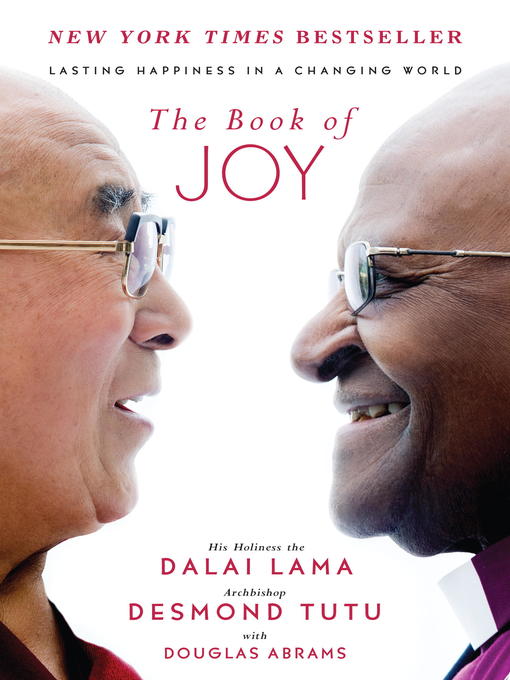
The Book of Joy
Lasting Happiness in a Changing World
کتاب های مرتبط
- اطلاعات
- نقد و بررسی
- دیدگاه کاربران
نقد و بررسی

Starred review from August 15, 2016
Cultivating joy was the subject of a five-day conversation between the Dalai Lama and Tutu, Archbishop Emeritus of South Africa, held in 2015 at the former's residence in exile in Dharamsala, India. The two Nobel Peace Prize recipients argued for a "true joy that was not dependent on the vicissitudes of circumstance," writes Abrams, who moderated the rare meeting between the two friends on the occasion of the Dalai Lama's 80th birthday. Highlighting the men's playful joking and delight in each other's company, Abrams carefully balances their strong voices during intense discussions on the many obstacles to joy (including fear, anger, and adversity) and ways to cultivate greater well-being, using as a framework the "eight pillars of joy" (perspective, humility, humor, acceptance, forgiveness, gratitude, compassion, and generosity). Throughout, Abrams skillfully incorporates information about each leader's life and work, basic Buddhist principles undergirding the Dalai Lama's perspectives, and current scientific research. The dialogue intentionally focuses on areas of common ground accessible to readers of any faith or none, though Christians can be assured that Tutu's contributions are infused with his deep love of God. This sparkling, wise, and immediately useful gift to readers from two remarkable spiritual masters offers hope that joy is possible for everyone even in the most difficult circumstances, and describes a clear path for attaining it.

October 1, 2016
This narrative recounts a multiday meeting of two highly regarded spiritual leaders and dear friends--the Dalai Lama and Archbishop Desmond Tutu--during which they discussed living a life filled with joy. Despite coming from two different spiritual traditions, the Dalai Lama and Archbishop Tutu approach the cultivation of joy in similar ways. Both believe that suffering is inevitable and serves as an obstacle to experiencing joy. In addition, they recognize the interconnectedness of human beings, and how a compassionate approach helps us to alleviate pain not only for others but also for ourselves. Joy, for them, is manifested internally and transcends happiness, which is often dependent upon external circumstances. Cowriter Douglas Abrams (God's Dream) weaves scientific findings related to emotions and the brain throughout the work. Several joy practices are included for those who are seeking a practical complement to the anecdotal, philosophical, and scientific perspectives presented. VERDICT Not just for fans of the Dalai Lama and Archbishop Tutu but for anyone seeking to cultivate compassion and joy in the face of daily reminders of divisiveness around the world.--Amanda Folk, Univ. of Pittsburgh Lib., Greensburg
Copyright 2016 Library Journal, LLC Used with permission.

October 1, 2016
Imagine being in the room for a conversation between two of the most recognizable spiritual leaders of modern times, Archbishop Desmond Tutu and His Holiness the Dalai Lama. Thanks to this book, readers can do more than imagine. The two deeply spiritual and surprisingly jovial friends came together for several days to discuss a range of topicscompassion, suffering, loneliness, gratitudebut always ultimately came back to their primary theme, joy. Over the course of their protracted conversation, the duo provides insight into their faiths' guiding principles, gently disagreeing at times but more frequently finding common ground and spending some time teasing each other in the process. For all of their protestations that they are both just regular men, there is no doubt that each is something special. Readers will come away with great hope and gratitude for being welcomed into the conversation.(Reprinted with permission of Booklist, copyright 2016, American Library Association.)

























دیدگاه کاربران